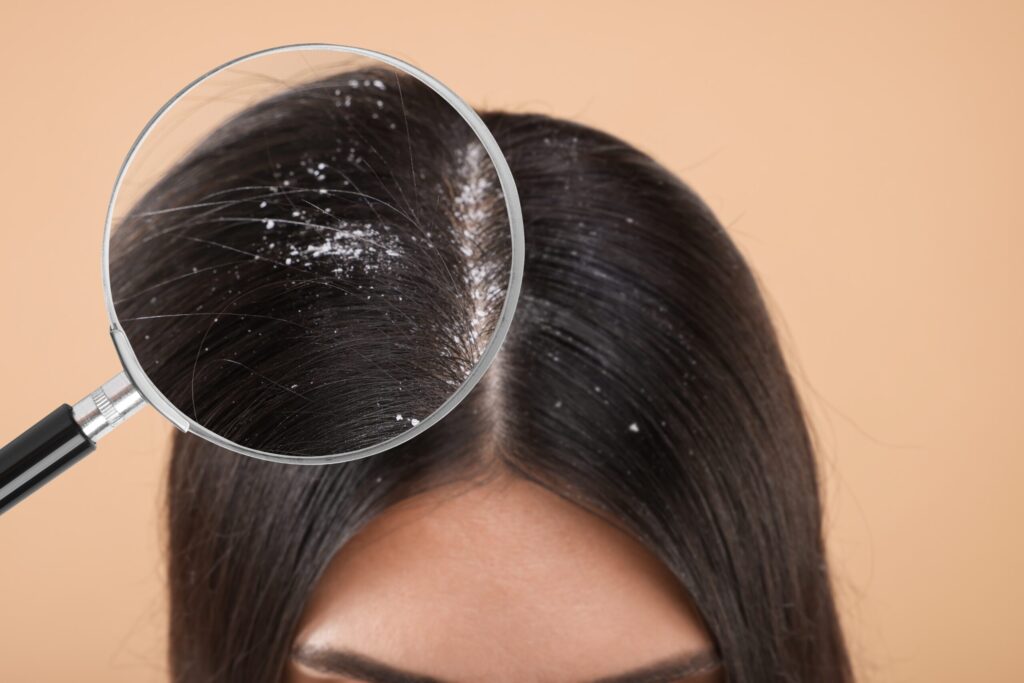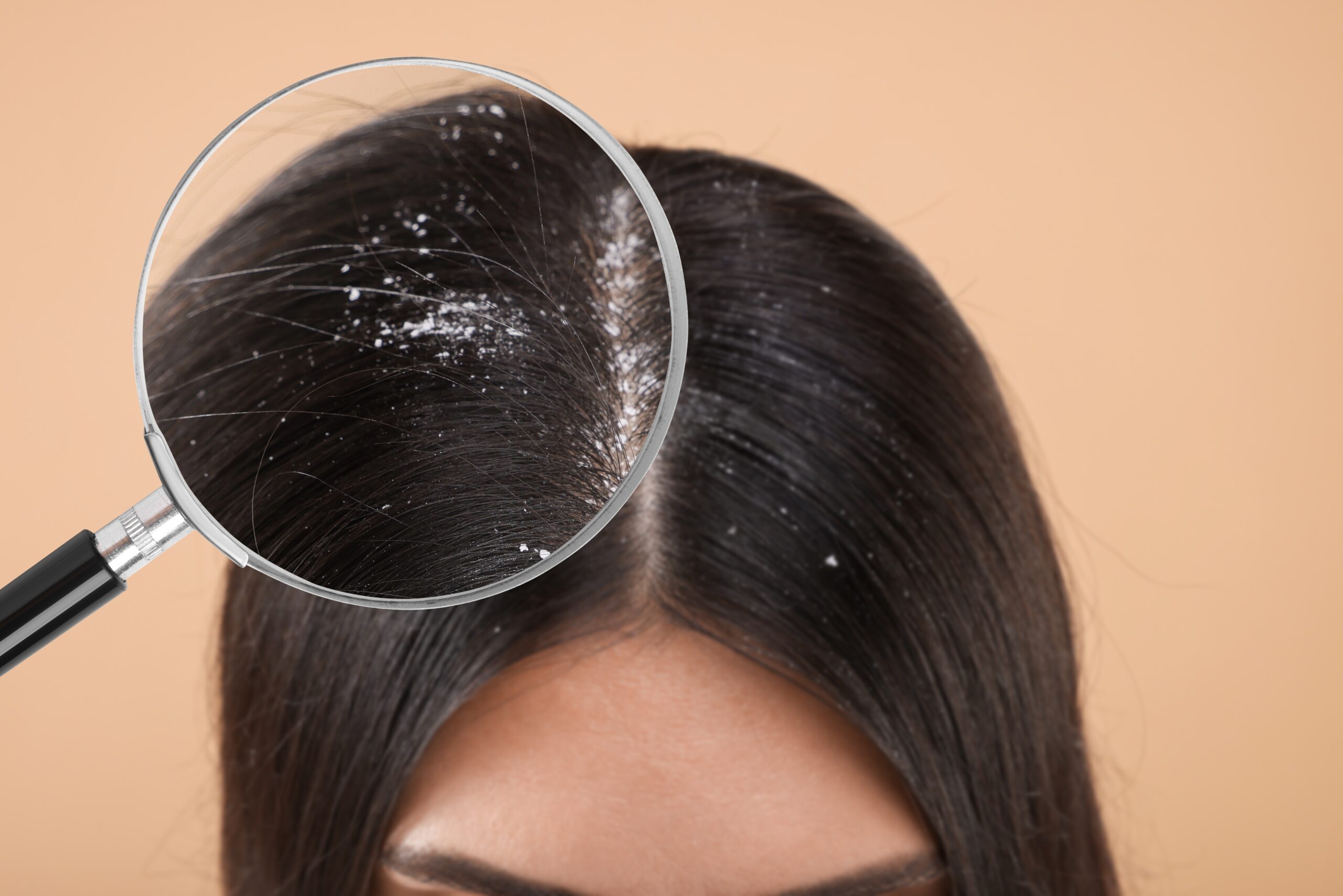Dandruff is a common scalp condition characterized by flaking of the skin on your scalp. It can be accompanied by itching and irritation, and while it’s not a serious issue, it can be persistent and frustrating.
If you suffer from scalp dandruff, you can consult the best dermatologist in East New York and inquire about its treatments at Doral Health and Wellness Dermatology Center.
To prevent it from recurring, let us understand its causes, types, and preventive measures.
Causes Scalp Dandruff
There are several causes why you have scalp dandruff, ang they can include:
- Dry Skin – This is one of the most common causes of dandruff. If your scalp is dry, it can lead to the shedding of dead skin cells, which appear as white flakes.
- Oily Scalp (Seborrheic Dermatitis) – A very oily scalp can also lead to dandruff. Excess oil can cause irritation and promote the overgrowth of Malassezia, a yeast-like fungus that feeds on oils and can lead to flaky skin.
- Skin Conditions – Conditions like psoriasis and eczema can affect your scalp and cause dandruff. Psoriasis, for example, leads to an accumulation of dead skin cells that form thick, scaly patches.
- Fungal Growth (Malassezia) – Malassezia is a yeast that naturally lives on your scalp, but sometimes it can grow out of control. This leads to an inflammatory response that causes your skin to shed flakes.
- Sensitivity to Hair Products – Certain shampoos, conditioners, or styling products may irritate your scalp or cause an allergic reaction, eventually leading to dandruff.
Types of Scalp Dandruff
There are different types of dandruff, which can include:
- Dry Dandruff – This is associated with a dry scalp and produces smaller, white flakes that are often less oily.
- Oily Dandruff – This is caused by an excess of sebum (oil) and leads to larger, greasy flakes that may stick to your hair and scalp.
- Fungal Dandruff – Caused by an overgrowth of the Malassezia fungus, this type of dandruff is often associated with oily, inflamed skin.
Prevention Tips fo Scalp Dandruff
Dandruff can be stubborn and recur several times. Here are some tips that you can try to prevent your scalp dandruff from recurring:
- Use an Appropriate Anti-Dandruff Shampoo
- Shampoos containing zinc pyrithione, selenium sulfide, or ketoconazole are effective at reducing fungal growth and keeping your dandruff under control.
- If your dandruff is related to oily scalp issues, look for shampoos with salicylic acid to remove excess oil and exfoliate your dead skin cells.
- Rotate between shampoos with different active ingredients to prevent resistance from developing.
- Moisturize and Condition Regularly
- Keeping your scalp hydrated can help prevent dryness, which contributes to flaking.
- Use scalp oils like tea tree oil or coconut oil, which have antifungal properties and can help keep the scalp healthy.
- Leave-in conditioners or light, non-greasy scalp lotions can also help prevent dry dandruff.
- Healthy Lifestyle
- Manage Stress – Stress can weaken your immune system and trigger or worsen dandruff. Regular physical activities, relaxation techniques like meditation, and enough sleep can help manage your stress levels.
- Maintain a Balanced Diet – Ensure your diet includes nutrients like zinc, vitamin B, and omega-3 fatty acids, which are helpful for scalp and hair health. Eating foods rich in probiotics can also promote a healthy balance of scalp flora.
- Stay Hydrated – Drinking plenty of water helps maintain skin hydration and can prevent dryness.
- Gentle Hair Care
- Wash your hair regularly, but not too frequently. Washing too often can strip the scalp of its natural oils, while infrequent washing can lead to oil and product buildup.
- Use lukewarm water, as hot water can dry out your scalp, which can worsen dandruff.
- Brush your hair daily to distribute scalp oils and promote better circulation, which can keep your scalp healthier.
- Avoid Harsh Hair Products
- Avoid shampoos, conditioners, and styling products with harsh chemicals, sulfates, or alcohol, as they can dry out and irritate your scalp.
- Choose hypoallergenic products or those specifically designed for sensitive skin.
- Sunlight Exposure – Small amounts of sunlight exposure can help reduce dandruff, as UV rays may have a mild antifungal effect. However, avoid overexposure, as too much sun can damage both of your hair and scalp.
- Maintain Proper Hygiene
- Wash your hair tools, such as combs and brushes, regularly to prevent oil and skin buildup.
- Change pillowcases frequently, as oils and skin cells from your scalp can accumulate and worsen your dandruff.
If you’ve tried these preventive measures and your dandruff persists, becomes worse, or is accompanied by symptoms like redness, severe itching, or scabs, it might be time to see your dermatologist. You may be dealing with a more serious condition, such as seborrheic dermatitis, psoriasis, or a fungal infection that requires prescription from your dermatologist.
By adopting these practices and understanding what works best for your scalp type, you can significantly reduce the chances of your dandruff coming back.
At Doral Health and Wellness Dermatology Center, we treat different types of skin conditions, including scalp dandruff. Our dermatologists are equipped with the right knowledge and expertise to help you treat and manage your condition. You can visit us at 1797 Pitkin Avenue, Brooklyn, New York, 11212, to schedule an appointment. You can also call us at 1-347-384-5690 or visit our website at https://www.bestbrooklyndermatologist.com.







